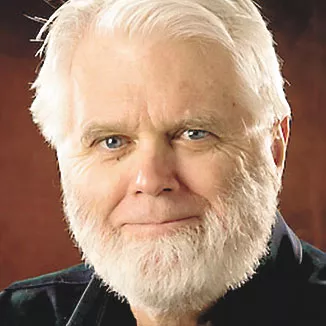Last June, I seconded the growing sentiment that John Moyer be nominated to have the plaza above Huntington Park named after him. I cited his medical career and his efforts to help kill the Lincoln Street Bridge project.
Moyer, who passed away in August, has since been formally nominated and is now a finalist. The three finalists — King Cole, "The Gathering Place" and Dr. John Moyer — all are excellent choices. All three are deserving of recognition. The question in my mind goes to "fit" and "timing." I'm sticking with Dr. Moyer, if for no other reason than the plaza and park fit, the timing is perfect to recognize his exemplary life, and, as it turns out, there actually are more meaningful and appropriate ways to recognize both King Cole and our Native American heritage. Moreover, since June, our community priorities have refocused, making Moyer an even better fit.
About King Cole: He deserves more than a plaza. My suggestion: Let's rename the park after the "Father of Expo" and call it "King Cole Riverfront Park." There is precedent; Portland named its park along the Willamette River the "Tom McCall Waterfront Park" after Oregon's late governor and environmentalist.
Native American recognition? Yes, the tribes fished the river, but they "gathered" at what today is Indian Canyon Golf Course. The city has never addressed this important history. My question: Might there be a way to capture our Native American legacy through restoration of "The Canyon," a community treasure? Turns out there is, and at the most propitious time, for both the tribes and the course. The course is in bad shape, having been neglected by the Park Board and Park Department for more than a decade. Longtime head professional Gary Lindeblad has advocated for a public-private partnership involving local tribes. Such efforts would focus more specifically on tribal history, while the course and its expanded facilities could become a draw once again. Everyone wins.
About John Moyer, whose contribution to the bridge fight was of singular importance: The truth is, had the Lincoln Street Bridge been constructed we wouldn't be having this discussion. There would be no plaza to name, because there would be no plaza. Indeed, there would likely be no Huntington Park. Why a plaza, if instead of looking down on the gorge vista, all you saw were cars rumbling over the widest bridge in the city? And who would care about hiking down to a park, only to stare up at the underside of a bridge that would also have ruined the view corridor from the park back up to the magnificent, Kirtland Cutter-designed Washington Water Power plant?
When Moyer joined the opposition, the situation was dire. The federal money was in the bank, and the cranes were on the river. The downtown leadership, the traffic engineers, the mayor and most on the City Council — they all wanted the bridge. And you weren't supposed to have the temerity to not "go along, to get along." Not the Spokane way. The critics were castigated in the press and maligned by some members of the City Council. One was told that if he didn't back off, he might be fired. Still, Moyer and his friends persevered.
And Moyer would be the last to claim most credit for killing the bridge. Others were crucial, too, like Rick Hastings, who kept the Friends of the Falls alive and active. There was John Covert, a geologist, proved that the city's traffic and pollution analysis was all wrong. The Siddoways, Doug and Laurel, provided the critical legal work. And then there was nationally known traffic engineer Walter Kulash, who came to town and, in the words of Ron Wells, "changed the debate." Kulash showed how the project worked against the best urban principles, made little economic sense, contradicted the Downtown Plan and would result in a Division/Ruby-like couplet — terrible for businesses downtown, worse for neighborhoods to the north.
Throughout the fight, however, it was Moyer who most dramatically drew the issues together — that we would save the gorge and Native American heritage by killing the bridge. When Moyer spoke about this, about the tribes fishing for 80-pound salmon, he left people in tears.
About those priorities: Since last summer, Spokane leaders have put the training of family doctors at the top of our list of important community and regional challenges. Here we have an opportunity to memorialize Spokane's very own "doctor's doctor." Has there ever been a physician in Spokane who delivered more babies, while working run-outs to so many rural Washington communities? Moyer symbolized what "doctoring" was all about, and what we want it to be about again.
So let's name the plaza at the entrance to Huntington Park after John Moyer, and by extension, honor his life's work, both professionally and as our civic conscience. Then we can turn our attention to commemorating the other two worthy finalists, too. ♦


















